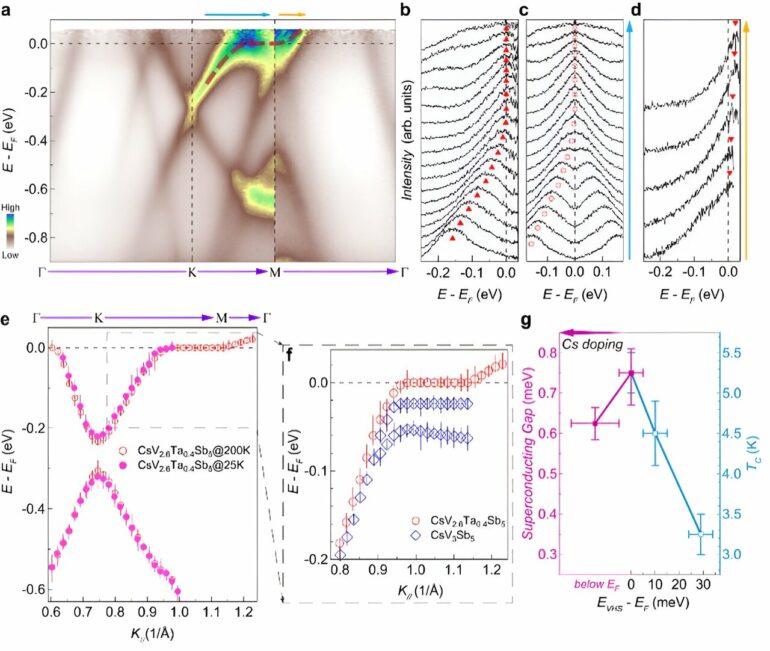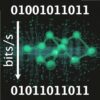A team led by Prof. He Junfeng from University of Science and Technology of China (USTC) of the Chinese Academy of Sciences (CAS), in collaboration with Academician Gao Hongjun’s team from CAS and other domestic and international research teams, has discovered the van Hove singularity (VHS) at Fermi level in kagome superconductors and revealed its relationship with superconductivity. Their work was published in Nature Communications on June 28.
VHS is a saddle point connecting electron-like and hole-like energy bands that can generate divergent electron density of states. On the one hand, the luge electron density of states near VHS can cause strong instability in the electronic structure. On the other hand, hole-like and electron-like conduction can coexist at VHS, giving rise to unconventional electronic pairing.
However, in reality, VHS tends to deviate from the Fermi level of the material, resulting in very little effect on the low-energy states of the material. Therefore, it is important to find the suitable kagome material to explore the effect of VHS on superconductivity.
The researchers investigated Ta-doped CsV3Sb5 samples, and the use of Ta atoms instead of V atoms can increase the superconducting transition temperature from 2.5 K in CsV3Sb5 to 5.5 K in CsV3-xTaxSb5 (x~0.4). Angle-resolved photoemission spectroscopy was used to investigate the electronic structures of both CsV3Sb5 and Ta-doped CsV3-xTaxSb5 samples.
The results showed that the VHS in CsV3Sb5 lies below the Fermi level before entering the superconducting state due to the reconfiguration of energy bands by the electron density wave and contributes almost nothing to superconductivity, whereas in CsV3-xTaxSb5, the VHS is located exactly at the Fermi level, in agreement with first-principles calculations.
Further experiments demonstrated that there is a strong correlation between the superconducting transition temperature and the energy position of the VHS relative to the Fermi energy level, revealing the feasibility of VHS-enhanced superconductivity in kagome superconductors.
In addition, the researchers found that the superconducting state in CsV3-xTaxSb5 has significantly different characteristics from the superconducting state in CsV3Sb5 through scanning tunneling microscopy experiments, indicating the possibility of unconventional pairing superconductivity in the van Hove scenario.
More information:
Yang Luo et al, A unique van Hove singularity in kagome superconductor CsV3-xTaxSb5 with enhanced superconductivity, Nature Communications (2023). DOI: 10.1038/s41467-023-39500-7
Provided by
University of Science and Technology of China
Citation:
Researchers reveal van Hove singularity at Fermi level in kagome superconductor (2023, August 22)



